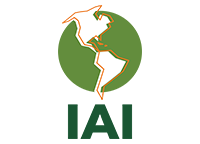Scientists, Policymakers, and Stakeholders Plan for Climate Change: A Promising Approach in Chiles Maipo Basin.
| Publicado en | Environment: Science and Policy for Sustainable Development, v. 58(5):24-37. |
|---|---|
| Autores | Melgar, A.C., Vicuna,, s., Gironás,, J., Varady,, R. Scott, C. A. |
| Año de publicación | 2016 |
| DOI | https://doi.org/10.1080/00139157.2016.1209004 |
| Afiliaciones | University of Chile Pontificia Universidad Católica de Chile University of Arizona |
| Programa | CRN3 |
| Proyecto | CRN3056 |
| Keywords | |
Abstract
In the face of high-impact, but uncertain, environmental changes likely to affect the supply and demand of water resources, societies are discussing the need to adapt to such changes and considering their available options to do so. Inspired by a decision-analysis approach called robust decisionmaking (RDM), a collaborative science-policy dialogue is being sustained in Chile&rsquos Maipo River basin. The Maipo is a highly populated, water-scarce basin that has long faced multiple environmental challenges. Through a science-policy dialogue, a group&mdashcomprising representative water-resources stakeholders and multidisciplinary researchers&mdashhas identified water-related attributes that the different stakeholders wanted to protect in anticipation of climate variability and change in the basin. The result has been a hybrid water security&ndashecosystem services&ndashhuman well-being adaptation framework with three dimensions: i) water availability and requirements (quantity and quality), ii) water-related objectives, and iii) ultimate human well-being and ecosystem-services outcomes. We show that this framework&mdash&ldquoco-produced&rdquo by stakeholders and researchers&mdashsupports adaptation by helping participants recognize the underlying development and ecosystem-services aims that must be planned for in addition to the aims of satisfying short-term water needs. The framework is used to identify appropriate performance indicators that would evaluate the need for climate-change adaptation strategies. The adaptation framework helps to visually focus the dialogue on: i) uncertainties in the climate and development scenarios that are likely to influence the definition of alternative futures ii) intersectoral and upstream-downstream relations that need to be better understood through models and stakeholder engagement and iii) the scale and location of the implementation of potential adaptation strategies. Developing and applying this framework in the Maipo River basin in Chile demonstrates that co-production of a climate-change adaptation plan centers on water as the means to fulfill multiple human well-being and ecosystem-services outcomes. Understanding how climate can impact lifestyles and societal aspirations prompts decisionmakers to more urgently pursue adaptation actions and policies, despite climatic, political and other uncertainties. With suitable adjustment for context, the insights and lessons drawn from developing this framework in the Maipo River basin may be applicable in other locations across the globe&mdashespecially in arid or semiarid regions with increasing hydroclimatic variability, long-term water scarcity, and water-security threats from rapid growth in demand,
